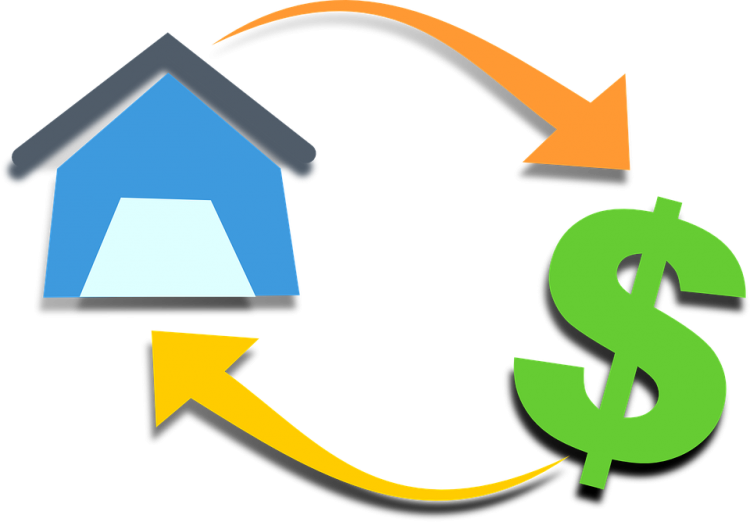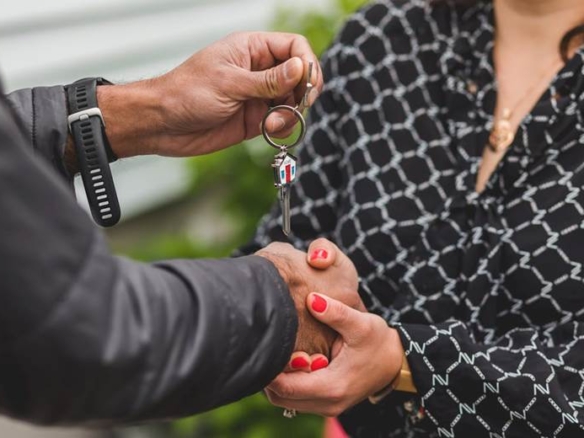When any type of recession hits, no one seems to be spared. This can be especially true for seniors who are living off of fixed incomes during their retirement years. When times get tough, older individuals turn to alternatives to bring in more cash flow. One popular option many consider is taking out a reverse mortgage.
What Is It?
A reverse mortgage is a loan type that serves as a cash advance on the equity a homeowner has available in their home. The loan is federally-insured and will be repaid when the homeowner (borrower) or eligible spouse (non-borrower) leaves home by choice or passes away. These loans are available to seniors with an eligible amount of home equity available.
While millions have already taken advantage of this financial tool, others are not ready to take the plunge and are unsure if it will benefit them. To educate yourself before making a decision, below are some of the top pros and cons of a senior taking out a reverse mortgage.
Pros Of Reverse Mortgages For Seniors
A loan can offer certain senior homeowners many benefits and can be a financial tool to help them when they need supplemental cash flow.
No Mortgage Payments
Unlike most types of mortgage loan options, a reverse mortgage will not require any type of repayment each month. The payments are deferred until you pass away, move out of the home, sell the home, or default on your loan terms. As a borrower, you will still be required to pay property taxes, home maintenance expenses, and homeowner’s insurance.
Loan Money Is Non-Taxable
A great benefit of reverse mortgages is that the funds are not considered income. The IRS recognizes the funds as loan proceeds instead, and they are not taxable. Many other types of retirement investments get taxed when withdrawn early.
Seniors Can Remain In Their Homes
The main goal of a reverse mortgage is to keep seniors in their homes while giving them extra cash flow to keep them afloat. The terms of the mortgage loan require certain responsibilities to be met to continue receiving equity funds, including maintenance costs, paying property taxes, and keeping up with homeowner’s insurance.
You Will Not Owe More Than Home’s Value
Due to protection enacted by the FHA, reverse mortgage borrowers will not have to pay more than the home is worth when sold. This is true even if the loan balance is more than the value of the home. The homeowner’s heirs will not have to worry about debt caused by the mortgage.
Non-Recourse Loan Protects Other Assets
Reverse mortgages are considered non-recourse loans. The loan is secured by a lien put on the home and will protect any other assets you own if you fail to meet your loan obligations. The only asset a lender may utilize is the home and nothing else.
Loan Payments Can Still Be Made
Even though monthly payments towards your reverse mortgage are not necessary, you can still make payments towards the loan without receiving any prepayment penalties. Many seniors enjoy knowing they could skip a monthly payment if they needed to, but enjoy knowing they can continue making their monthly payments without any negative consequences.
Cons Of Reverse Mortgages For Seniors
As with other types of financial products, there are some downsides to consider. Some aspects of a reverse mortgage may not serve all seniors. Below are some of the downsides of this type of financial product.
Equity Minimum Limits
Not all senior homeowners can qualify for a reverse mortgage. These loans were designed to help homeowners access the hidden wealth their home holds as equity. The ability to convert your equity into cash to supplement your income during retirement can be a great financial move.
Not All Properties Can Qualify
Unfortunately, investment homes and vacation homes will not be eligible for a reverse mortgage. To qualify for the loan, the mortgage will need to be borrowed against your primary residence. Mobile homes, certain types of condominiums, and properties that are not approved by the FHA may not be eligible as well.
Restrictions To Stay Within Terms Of Loan
To keep from failing to meet the terms of your reverse mortgage loan, you must keep the home maintained, insured, and taxes paid. This is to allow the lender to resell the home in good condition and get an amount equal to the amount they paid you for the loan. To make things easier, your lender can set aside some funds from the mortgage loan to pay for these expenses so that you can continue meeting your financial obligations.
These are just some of the more common pros and cons seniors over the age of 62 can expect from taking out lending for seniors. For most homeowners, the benefits will far outweigh any negatives associated with the loan.




